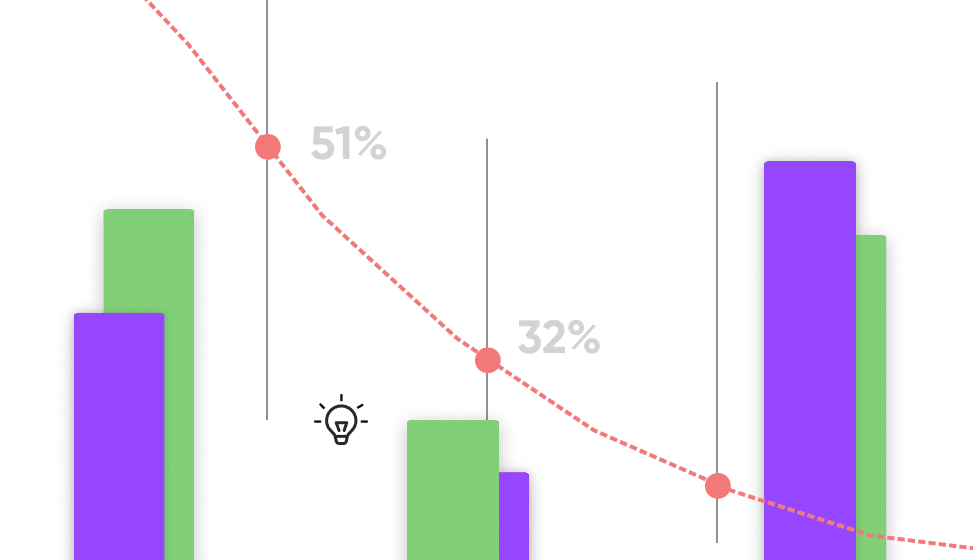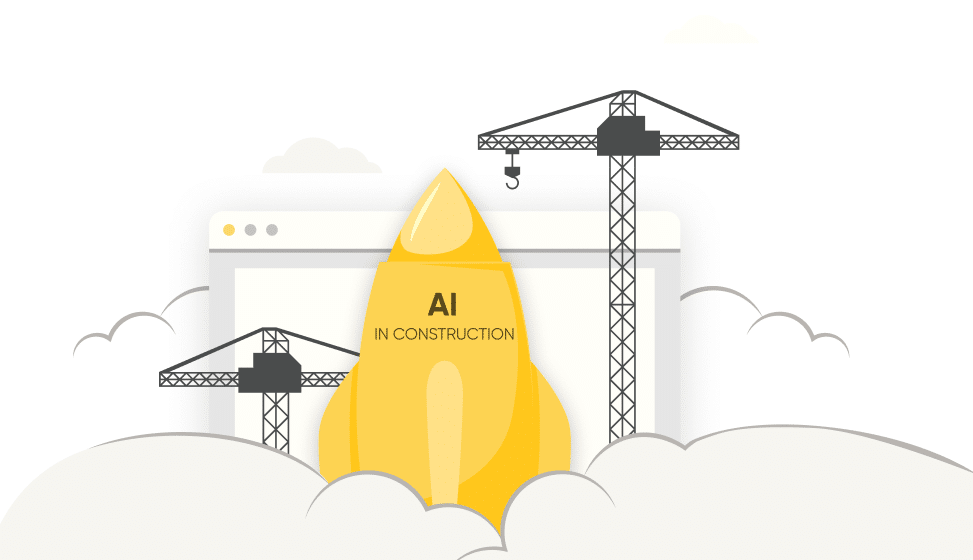Building resilience amid uncertainty Why digital construction is no longer optional
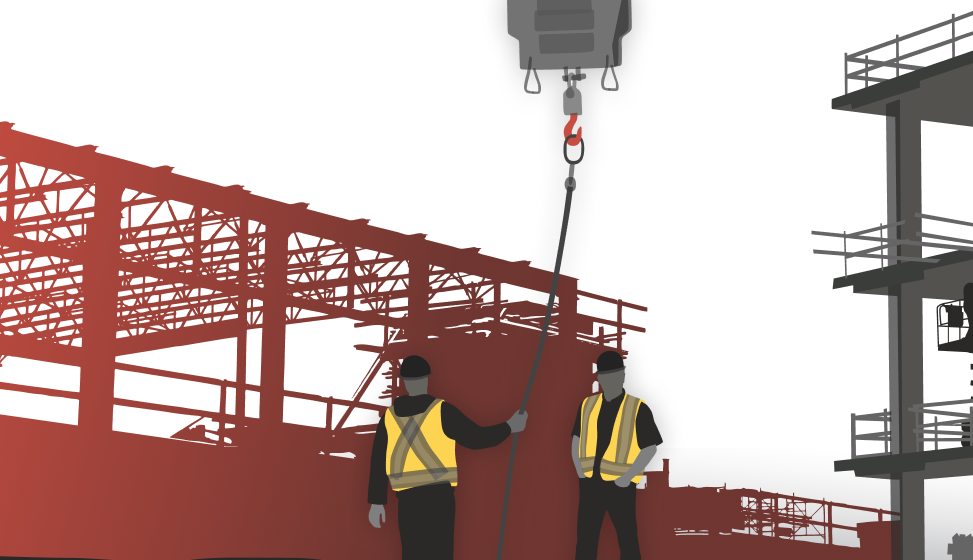
ISG – the UK’s sixth largest contractor – entered administration on September 20th. This represents the industry’s most high-profile insolvency since Carillion in 2018 and is understandably the subject of vigorous debate. But for many industry observers, ISG’s demise wasn’t entirely unexpected. The company's financial struggles are symptomatic of deeper, long-standing issues within UK construction – wafer-thin profit margins, delays and a lack of transparency.
By July 2024, a staggering 4,373 construction firms had already gone insolvent – a number that could double by the end of the year. What’s even more staggering is that this is a typical year. Osborne, a company I was at the helm of from 2015 to 2021, also sadly entered administration this year, making 100 people redundant, many of whom were former colleagues.
The demise of ISG and others is part of a trend that desperately signals the need for the industry to rethink how it operates in an increasingly complex environment.
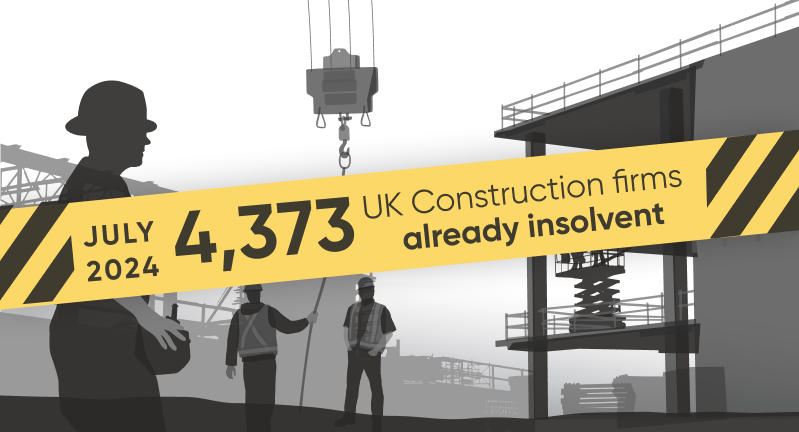
A perfect storm?
ISG seems to have unraveled quickly. As recently as 2022, the company posted accounts showing a profit. Rumblings of financial pressures started a year ago, growing into a crescendo since February 2024. This suggests – and we are merely speculating here – that ISG’s leadership only became aware of project delivery issues once it was already too late. Had senior leaders known there were issues earlier, they may have taken additional proactive steps to mitigate them – whether by managing client relationships, starting conversations with financiers, or better managing their supply chain.
Though ISG is an extreme example, a lack of visibility is a near-universal problem for construction industry executives. It’s true that recent crises, including Brexit, COVID-19 and Russia’s invasion of Ukraine, caused sharp supplier price increases, project timeline extensions and frequent bid cancellations or delays (cited as a key reason behind the ISG collapse). So, there’s a lot that’s outside leaders’ control. However, companies must take ownership of all the aspects they can control.
Contractors need an early warning system
The construction industry has recently seen an influx of tech talent, leading to the development of tools and platforms that would have seemed impossible just a few years ago. However, the adoption of new technology has remained persistently slow. The industry needs to focus on tech if it wants to get its house in order – something that the UK Government’s own Construction Playbook supports but is not yet stipulated in government contracts.
AI-powered progress tracking is an advanced technology that can have a huge positive impact. It provides objective, granular data on everything happening onsite, and predictive analytics that can accurately forecast delays and completion dates. This data has no human bias and is much more detailed than what the human eye can capture, so there’s never any ambiguity about a project’s current status and direction. In addition to project-level data, these technologies offer portfolio-level insights that inform risk assessment, resource allocation and financial oversight.
This dramatically changes the way contractors do business:
- Firstly, construction executives get the ‘early warning system’ they sorely need and can make more informed strategic decisions at the company level.
- Secondly, contractors can start to turn the tide on delays. AI progress data and predictive analytics can spot activities falling behind months in advance, allowing project teams to manage their supply chain and discuss potential solutions with trades.
- And last but not least, total transparency creates a culture of collaboration – rather than finger-pointing – setting the industry on a positive trajectory.
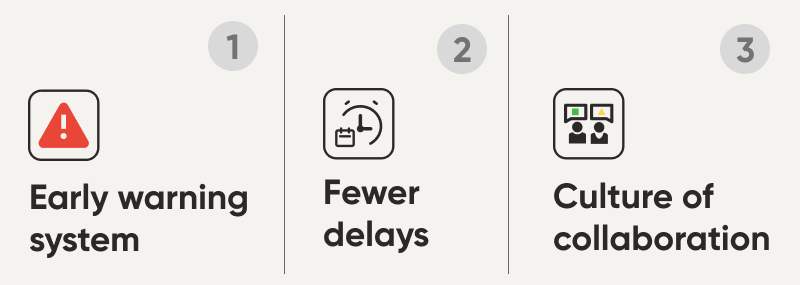
Preventing the next ISG
ISG’s downfall is a stark reminder that the UK construction industry can no longer afford to operate with outdated processes and limited visibility. The industry is fully aware of the issues in its business model and how fragile it is. To prevent further casualties, it must adopt a more transparent, performance-driven approach to construction management. To learn more about how you can implement AI progress tracking or a performance-driven approach to construction management, talk to our experts.


